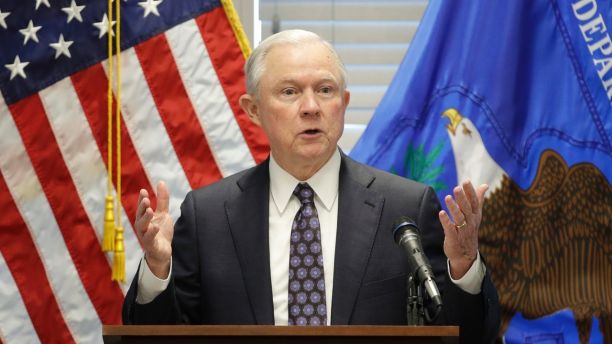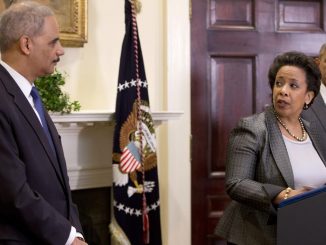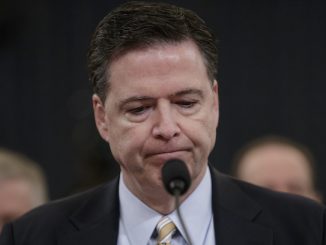
A capable U.S. attorney is a far better choice than a second special counsel.
On Thursday the attorney general released a letter informing Congress that he’d asked Utah-based U.S. Attorney John Huber to investigate lawmakers’ complaints about the Justice Department and the FBI. Turns out Mr. Huber has been working on this investigation, in concert with the Justice Department’s inspector general, since November. The news of Mr. Huber’s appointment came two days after a statement from FBI Director Christopher Wray confirming a similar push by Mr. Sessions to get agents responding to congressional subpoenas off their tuchuses. Notwithstanding the thin news coverage, these are big steps. Yet few on the GOP side seemed pleased. Though Sen. Ron Johnson (R., Wis.) specifically said Sunday on NBC’s “Meet the Press” that he was delighted Mr. Sessions had not opted for a second special counsel to look into allegations of FBI misconduct in its probe into Hillary Clinton’s emails and its application for a warrant to spy on a Trump campaign associate, other Republicans groused.
Widget not in any sidebars
Then there’s the president. While President Trump remains silent (for now at least) about the appointment of Mr. Huber, on Monday morning he tweeted another dig at his attorney general’s leadership:
“So sad that the Department of ‘Justice’ and the FBI are slow walking, or even not giving, the un-redacted documents requested by Congress. An embarrassment to our country!”
President Trump is right about the slow-walking of files in defiance of congressional subpoenas. He’s also right that critical info has been redacted from documents sent to Capitol Hill. This includes the lively little text chat between FBI paramours Peter Strzok and Lisa Page about how they might arrange to meet with a Foreign Intelligence Surveillance Court judge while making it appear accidental. Still, the president is behind the curve. To begin with, the only reason Mr. Wray has promised the FBI will do better is because Mr. Sessions leaned on him. More to the point, this is a problem the president could easily resolve himself, by using his authority to declassify material as well as assigning someone not only to get Congress the information it seeks but to review all redacted material to see what the bureaucrats are hiding. As for Mr. Huber, though his appointment elicited barely a yawn in the news cycles, this is not a mistake the FBI’s recently sacked deputy director, Andrew McCabe, is making. Could it be that Mr. McCabe established a GoFundMe legal defense fund—which now has more than half a million dollars in it—because he knows what is in that soon-to-be-released inspector general’s report? Those disappointed with Mr. Sessions’s decision don’t seem to recognize that Mr. Huber has pretty much the same powers that Robert Mueller enjoys: to get search warrants, to subpoena witnesses and documents, and to ask a grand jury to indict. The only advantages of a special counsel are ones that should be discouraged: an Inspector Javert-like focus on a single target or set of targets that goes on much longer than it should and strays far from the original mandate. Like so many other bad ideas that plague American political life, the special counsel as we conceive of it today is the bastard son of the Nixon era. After the initial Watergate prosecutors were thought to lack sufficient independence in going after the president, Congress during the Jimmy Carter era passed the Ethics in Government Act, which provided for the appointment of a truly independent special prosecutor. The only good thing to come out of this terrible law was Justice Antonin Scalia’s brilliant and solitary dissent savaging it in Morrison v. Olson (1988)—arguably his finest opinion. In 1999, after unhappy bipartisan experience with independent counsels, Congress let the provision lapse. Now special counsels such as Mr. Mueller are more limited legal beasts. But it remains a dreadful idea. As former assistant U.S. attorney Andrew McCarthy notes, if a special counsel is truly “special”—i.e., not accountable to the president like every other executive employee—then he is constitutionally suspect. If he’s not special, it is unclear why he is an improvement over any capable U.S. attorney.
Widget not in any sidebars
For Congress, the even bigger problem is the conflict between the goals of a special counsel (indictments) and the exercise of legislative oversight (political accountability). In his “Meet the Press” interview Sunday, Sen. Johnson noted that the primary casualty of this clash is public disclosure. Note to GOP members: If you think the FBI and Justice Department are arrogant about sharing information, see what happens when a special counsel moves in. By reading the riot act to his reluctant FBI director and shunning the appointment of another special counsel, Mr. Sessions has rendered a service to the Constitution, to good government and even to President Trump, though he may not realize it. Perhaps even worthy of a celebratory presidential tweet.







Be the first to comment